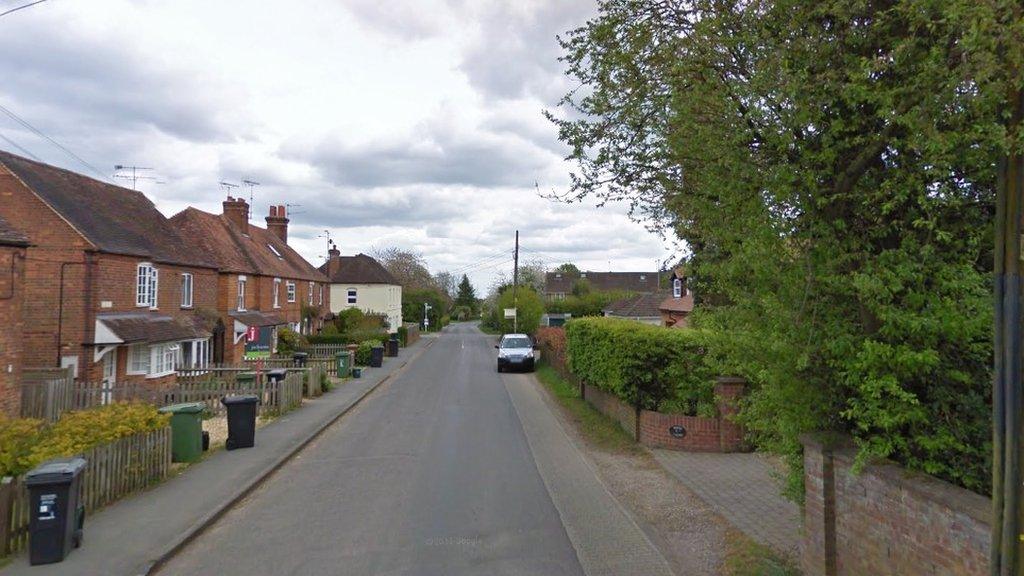'Power of attorney more important than will', says widow
- Published
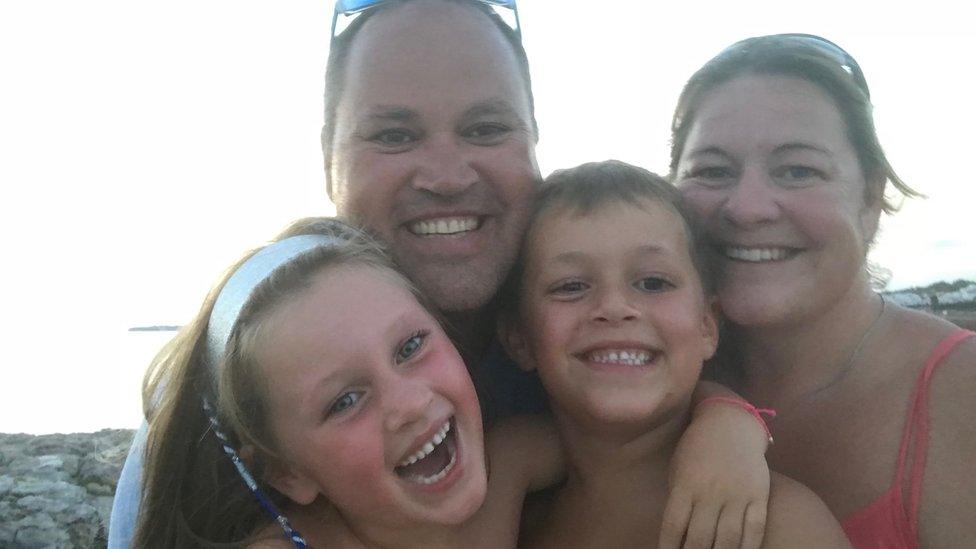
Bradley Visser was a father-of-two and "proud South African"
The wife of a man who died in an electric skateboard crash has spoken of the importance of a legal document that let him "die with dignity".
Bradley Visser, 38, suffered a severe traumatic brain injury when he crashed near their Oxfordshire home on 17 July.
Previously, he had given wife Annie Visser lasting power of attorney status in the event of such a situation.
She said the document showed he did not want to live with brain damage and had been more important than a will.
'Kind gentle giant'
Mrs Visser, who has two young children with Mr Visser, recalled the day of the crash, which happened just 200m from their home in the village of Stoke Row.
"I'd taken the kids to London and I'd just got back to Reading station, having spoken to him 20 minutes before.
"As soon as I got back to my car I got a phone call from a friend saying the air ambulance was with Brad on the road outside our house."
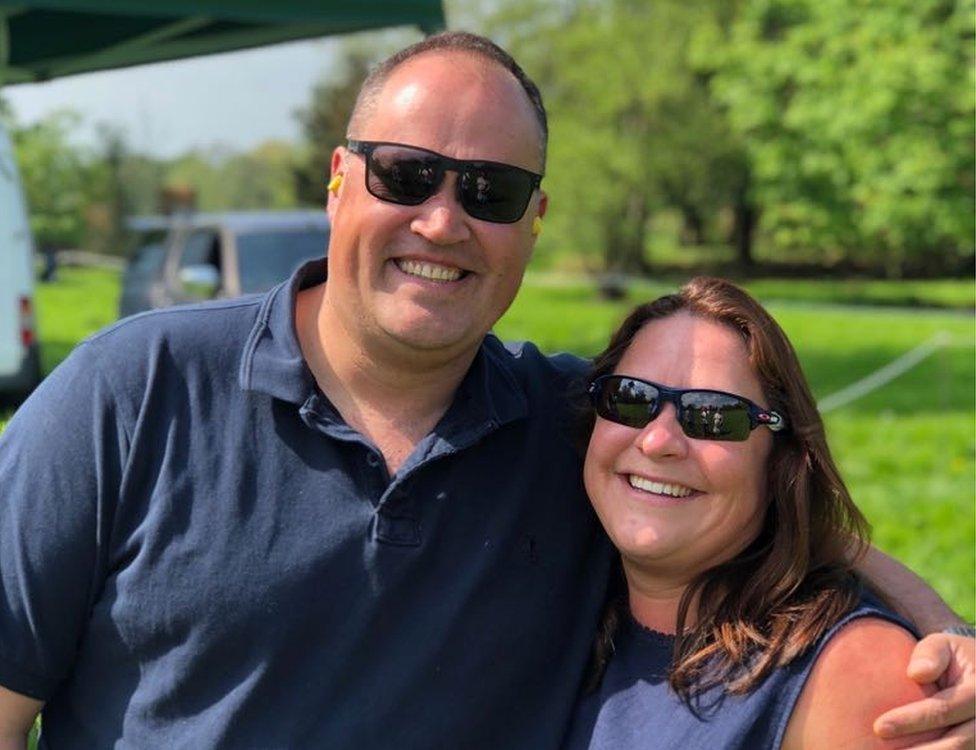
Bradley and Annie Visser married in 2009
After six days of emergency treatment for a bilateral brain haemorrhage at the John Radcliffe hospital in Oxford, Mr Visser developed double pneumonia and died on 27 July.
Mrs Visser called him "the life and soul of the party", an "incredibly proud South African" and "incredibly talented cabinet maker".
"Brad was the most honest, generous and kind gentle giant you could come across... this is a man who is too precious to be remembered for falling off a skateboard."
Previously, Mr Visser had given his wife power of attorney in a document stipulating she should not try to keep him alive if certain "life perimeters" were not met.
She said: "If he couldn't be a daddy, if he couldn't go to a rugby match, if he couldn't provide for his family by working, and if he couldn't be physically active, he didn't want to be here."
The POA meant she could present the hospital with a legal document stipulating his wishes, and had the power to make life decisions for her husband instead of the hospital.
In accordance with Mr Visser's wishes, his life support machine was switched off and he died two days later.
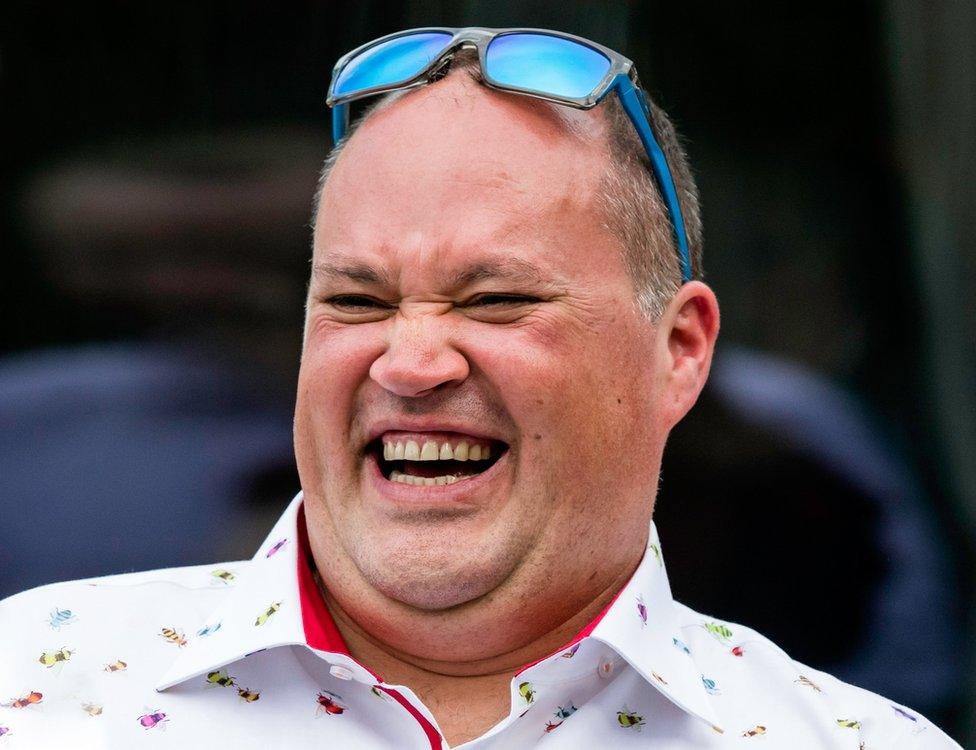
Mr Visser's wife described him as the "life and soul of the party"
Mrs Visser now wants to spread the word about the importance of having such a legal document "to do something positive in Brad's name".
"It is a document with far more importance than a will, yet no-one knows of it. That is what I am trying to change," she said.
"I genuinely think if I didn't have this piece of paper I wouldn't be able to get out of bed in the morning.
"The guilt of having to make a decision with no background knowledge on what that person genuinely wants is actually worse than the end result.
"I have been able to be as strong as I have been for myself and for the children purely because every step of the way I feel like I have Brad stood next to me."
- Published6 August 2019
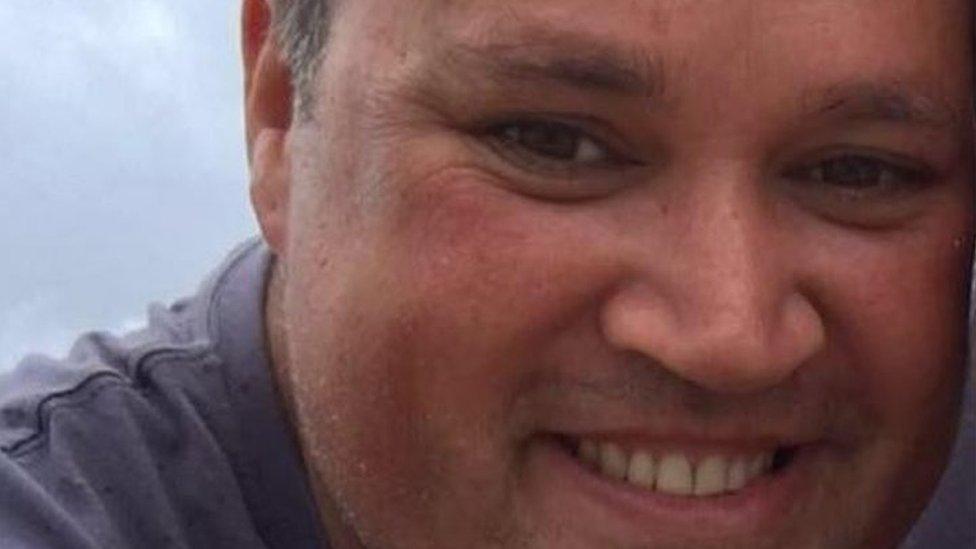
- Published3 August 2019
